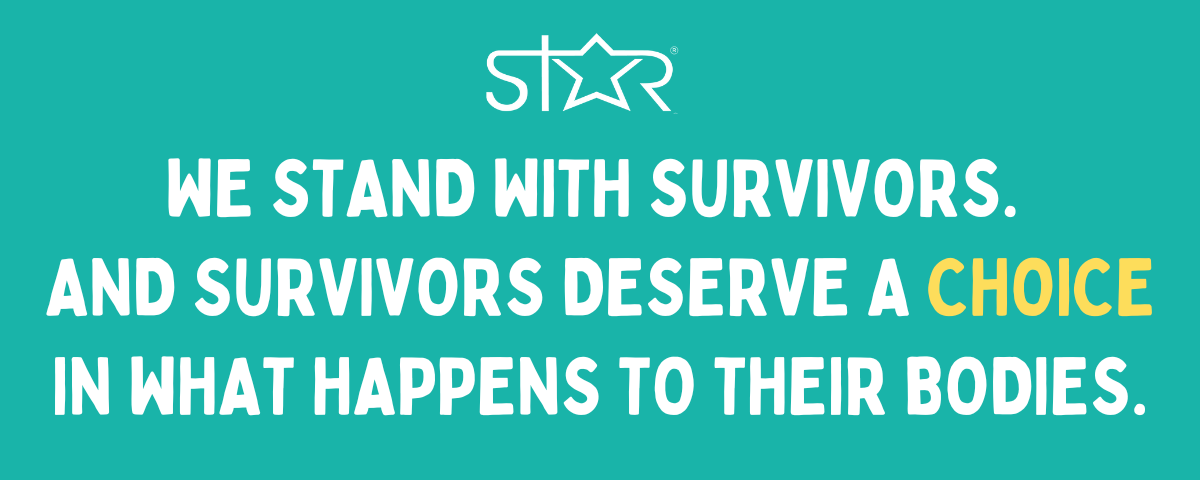
Last updated: July 20, 2022
On Friday, June 24, 2022, the U.S. Supreme Court overturned Roe v. Wade, ending the right to abortion. Louisiana is one of more than a dozen states with “trigger laws” in place banning or severely limiting abortions in the event Roe v. Wade was overturned. This trigger ban in Louisiana does not allow access to abortion for those who become pregnant as a result of rape and incest, which will have detrimental effects on survivors.
On Monday, June 27, 2022, a Louisiana judge issued a temporary restraining order against the state from enforcing its ban on abortions, which continued legal access to abortion care in Louisiana clinics until a hearing on July 8, 2022. This order was dismissed and the trigger ban on abortion in Louisiana went into effect immediately.
As of late afternoon on Monday, July 19, 2022, the order blocking Louisiana’s trigger law to ban abortion was extended. At this time, the extension is in effect until July 29, 2022. Abortion is legal in Louisiana until Friday, July 29th.
Louisiana currently has 3 operating clinics:
Delta Clinic of Baton Rouge
(225) 923-3242
Hope Medical Group for Women – Shreveport
(318) 221-5500
Women’s Health Care Clinic Inc – New Orleans
(504) 889-6010
STAR maintains that abortion care is a critical component of trauma-informed care for survivors of sexual trauma who become pregnant as a result or rape or incest. Eliminating abortion as an option for survivors hinders their ability to recover from sexual violence and puts their overall health and lives at risk.
Nationally, 1 in 20, or 5%, of all rapes committed among women and girls of reproductive age (ages 12 to 45) result in pregnancy. Banning access to abortion will force survivors to carry their abusers’ child to term.
Further, we know this issue is a particular concern for minors and young adults who are most at risk for experiencing sexual violence, and who also experience barriers to accessing reproductive healthcare, such as birth control and testing and treatment of sexually transmitted infections. Of all female victims, 41% reported that their first experience of rape or incest happened prior to age 18.
Please call STAR’s hotline for additional information and support.
(1) Holmes, M. M., Resnick, H. S., Kilpatrick, D. G., & Best, C. L. (1996). Rape-related pregnancy: Estimates and descriptive characteristics from a national sample of women. American Journal of Obstetrics and Gynecology, 175(2), 320-325. doi:10.1016/s0002-9378(96)70141-2
(2) Smith, S.G., Chen, J., Basile, K.C., Gilbert, L.K., Merrick, M.T., Patel, N., Walling, M., & Jain, A. (2017). The National Intimate Partner and Sexual Violence Survey (NISVS): 2010-2012 State Report. Atlanta, GA: National Center for Injury Prevention and Control, Centers for Disease Control and Prevention.
For additional resources, please visit the links below.
Center for Reproductive Rights
Lift Louisiana
Louisiana Department of Health
New Orleans Abortion Fund
Planned Parenthood Louisiana
